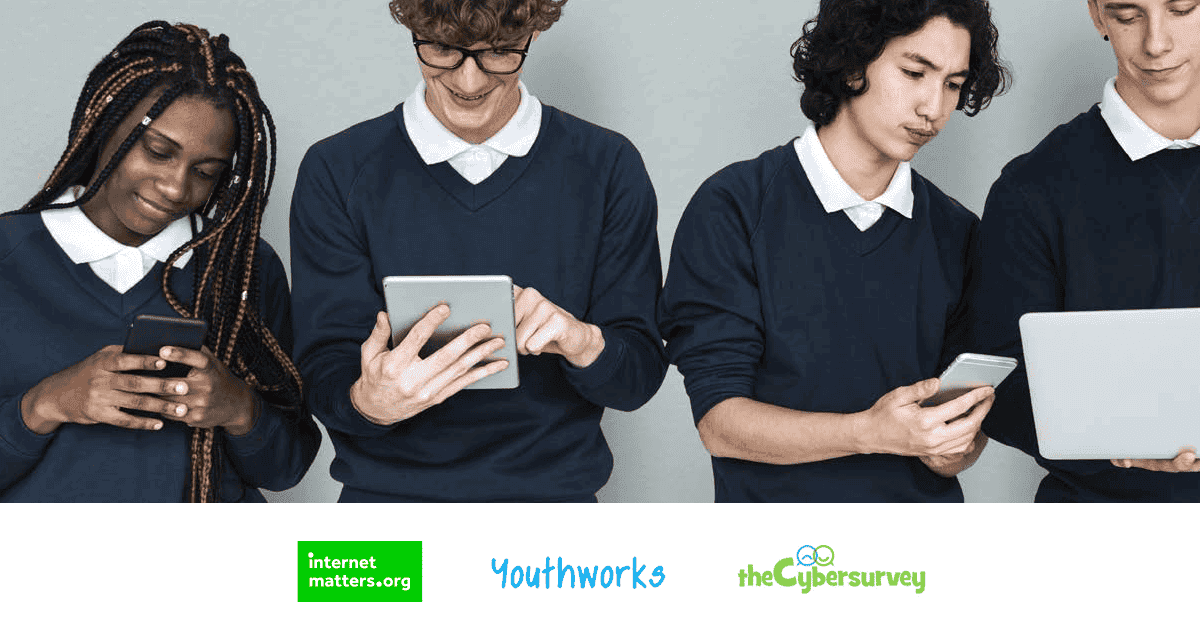Listening to the experiences and views of young people about their online lives is mission-critical for anyone that is engaging with children and young people. Therefore, Internet Matters was delighted to partner with Youthworks and the University of
Kingston on the 2019 Cybersurvey, as nearly 15,000 schoolchildren participated.
The survey is online and anonymous and completed in school time. The opinions expressed, the views shared, the examples given are real, unvarnished and sometimes raw. We owe it to these children to listen to what they have to say and address their concerns with them and together make the internet a safer and happier place for them to be.
Some themes emerge throughout this report that should give parents, educators and professionals working with children pause for thought. Firstly, that for many children and young people, the internet is a positive force in their lives. It’s how they manage friendships, how they communicate and how they learn.
This survey was in field before COVID hit the UK and so although the report cannot speak to the changes lockdown has brought, it does demonstrate the importance of connectivity for children. The report shows us what children are doing online and at what age, which can be used to inform us when we talk to our children and our students about their digital lives. We have to talk to them earlier than we think we should.
As ever, there are several areas that should concern us – principally the challenges of harmful content – both for boys wanting to ‘bulk up’ and girls wanting picture-perfect bodies, or even worse anorexic or harmed bodies. This report also shines a light on the racist and homophobic content far too many of our children either see or experience. The normalisation of aggressive language and the impact of our ever more visual society combine to make online a challenging place to be.
Not all children have to deal with those challenges and risks in the same way. This report reaffirms our belief that children experiencing offline vulnerabilities see, experience, encounter and are impacted by the worst of life online. Much more work is needed in this area – including continuing to listen to vulnerable children, equipping those that support them with the tools, resources and confidence to engage meaningfully in their digital lives. We owe it to those children, to get this right.
We hope you find this report insightful and useful. Our thanks to Adrienne Katz at Youthworks and Aiman El Asam from Kingston University for creating such an interesting and thought-provoking report.


